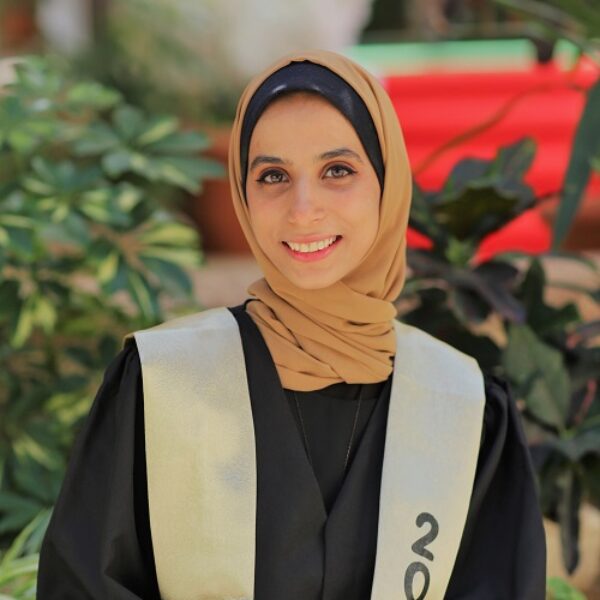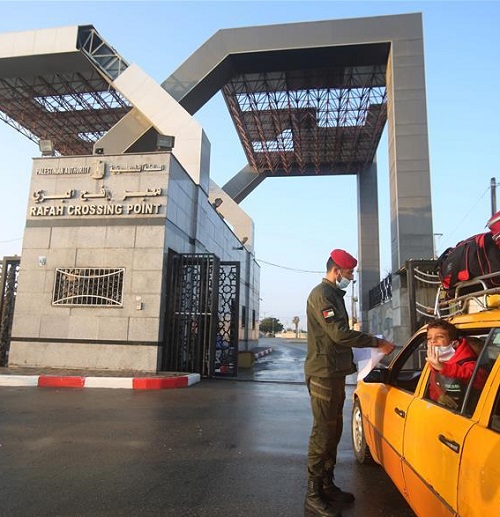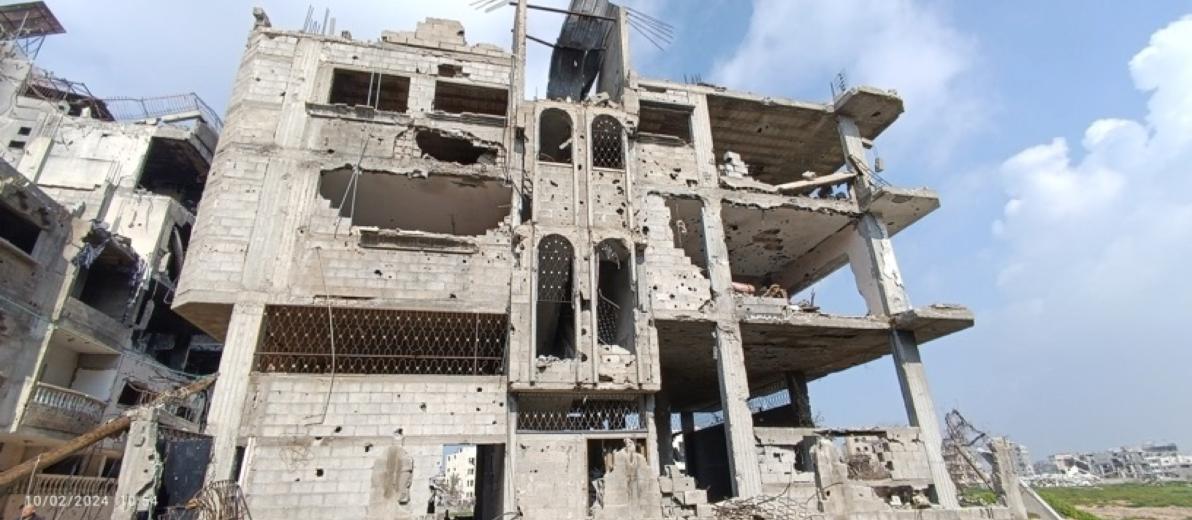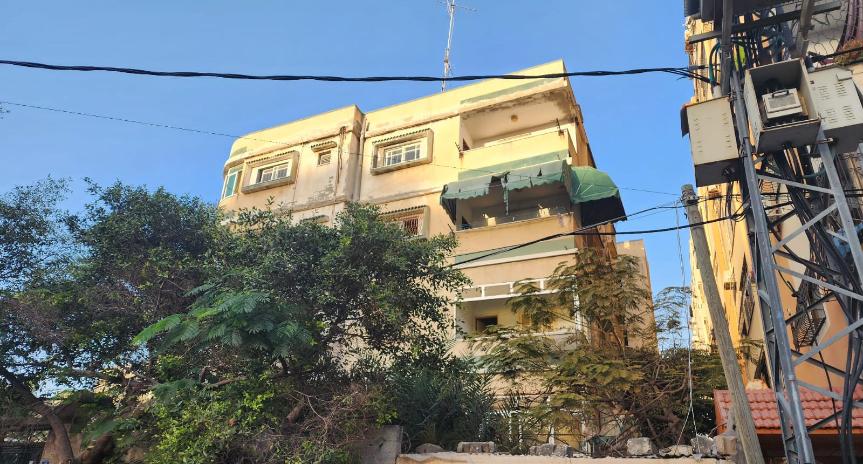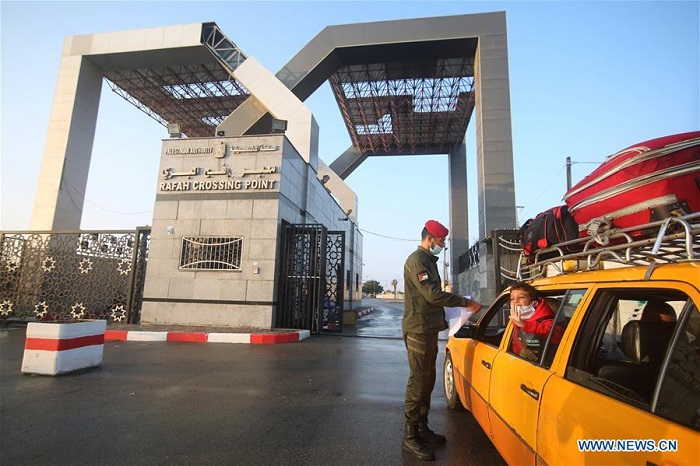
Travelling has been my dream since I was a teenager. I hadn’t traveled anywhere. I always had the feeling of being locked in a cage, but my teacher at my secondary school used to tell me that I was meant to go places.
I tried unsuccessfully to get a scholarship to go to college abroad. So I entered a university in Gaza, thinking that I would have to bear another four years before getting the opportunity to leave. Thankfully, during my second year, my university offered me a chance to be an exchange student at the University of Parma in Italy. I started preparing myself with excitement, unaware of the struggle I was about to face.
In some parts of the world, people just need a passport and maybe a visa to travel overseas. However, in order to leave Gaza you have to get multiple kinds of traveling papers, which can take a long time. The first step is getting the visa, but to do so you have to send documents to the West Bank, where the ministry and all the embassies are. It took me two months to get the visa.
I couldn't just book a flight after getting the visa, because we don’t have any airports in Gaza. We can fly either out of Jordan, after crossing the fences erected by the occupation between Gaza and the West Bank, or out of Egypt. I chose Jordan, thinking it would be faster. For Gazans, permission to travel to the airport in Jordan takes two steps: obtaining a “no-objection” letter from Jordan, then a permit issued by Israel.
I applied to be allowed to enter Jordan and waited two weeks, only to get a text message telling me my application wasrejected–without stating any reason! I received the message when I was walking and thinking about my plans. I stood still in shock, then went home in despair to cry myself to sleep.
The only option left was to get on the waiting list for the Egyptian border crossing. I was worried due to all the stories I had heard about people who had trouble entering Egypt. Two weeks passed while I waited for my name to appear on the list, at which point there was only one week left until the beginning of the semester. A few more days passed, and I received an email from the University of Parma telling me I must be there within the next few days.
I reached a point where I wanted any kind of answer instead of hopelessly waiting. And then I woke up to an email from the university apologizing for not being able to take me that semester, due to the delay. I read the emaila second time, leaned my head against the wall, took a deep breath, and asked myself, “All this, because I’m from Gaza?”
The second attempt
I had the whole second semester and summer holiday to prepare for another try at getting over to Italy, so I applied much earlier for everything. I still remember how grateful I was when I saw my name on the accepted list for the Egyptian border crossing.
At 6:00 AM on September 17, my parents took me to the processing point for Palestinian travelers. This is where they check travellers’ names against the list delivered from the Egyptian side. I still remember the look of fear and prayers my parents gave me when I was about to leave from this point, and how my father jumped into the bus to tell two men in front of me to take care of me, as I was travelling solo.
It took about three hours to get from the Palestinian processing point to the Egyptian one, where we had to sit for four hours until they started calling names. They first inspected everyone’s clothes and suitcases. They even opened every page of the books I took with me, to check if there was anything suspicious written or hidden inside! Everyone was then interviewed. Most of the travelers were patients, and some were rejected and returned to Gaza for no specified reason. One of them was in a wheelchair! Sorrow ate a part of my heart.
When they called my name, I entered the room, gave the officials my papers to check, and opened my laptop as they asked. I smiled while shaking when they told me I was accepted.
The Egyptian rules for Palestinians allow females to spend 48 hours in Egypt before heading to the airport, but men must wait until midnight, when they’re all put on a bus to the airport. There, they lock them in a room until boarding time. I’m still trying to figure out the reason. Most of them are students or patients!
I was supposed to find a car that would take me to the airport. But I was too scared to get in a car on my own. It didn't feel right to be alone. Luckily, a woman came up to me and asked me to hold her daughter while she was interviewed. When she came back, she suggested we find a driver together. We found two Gazan men looking for a car, and a woman with three children. We made a group together and got into one car.
The road to the airport
We filled the back of the car with our bags and headed to the airport. There were six checkpoints. At every checkpoint, they asked for our passports and then told us to get out of the car to inspect it. Then they told us to open our suitcases and take everything out of them. They told us then to repack. It was tiring and frustrating, but we had to obey.
Everyone in the car had a story behind their leaving. Gazan people mostly don’t travel for tourism or any kind of luxury. The mother of the girl I held told me how she waited a year until she was allowed to travel. She was married and living in Germany and came to Gaza to visit her family, not knowing that she would be prevented from returning. The daughter spent a year away from her father because she had wanted to meet her grandparents in Gaza.
Beside me on the other side was a man who was leaving Gaza to get his master's degree. He kept saying that Gaza is the grave of dreams, and he had to leave it to pursue what he wanted and get a proper job. The other man interrupted him, saying, “I’m a father of five, and I'm going to Turkey to look for a job there, to give my kids a proper life with more possibilities. I’ve spent years unemployed in Gaza since graduation.” The woman in the back seat holding her three children said that she was visiting her family in Dubai, but her true reason was to get medical care for her youngest son. Gaza suffers from a lack of medical care and employment because of Israel's siege, in which both goods and people are prevented from crossing the Gazan borders.
Along the road, my parents kept calling me every time there was a signal. They wanted to know what time I would arrive at the airport so they could book me a plane ticket. I left Gaza without booking a ticket because you never know if you’ll make it to the airport! It meant that I had to pay more for the ticket, but what else could I have done? The driver told me that the trip might take more than 12 hours, maybe less, depending on how many checkpoints we would face and how long each one would take. He warned us that heading to the airport didn’t guarantee reaching it safely! The Egyptian military might order any car to return to Gaza, or they might hold us for days on the road for “security issues.” So I told my parents that I’d call them once I was at the airport.
At 2:00 a.m., we were almost there. I was dizzy from the drowsiness, but the lights of the city were breathtaking.
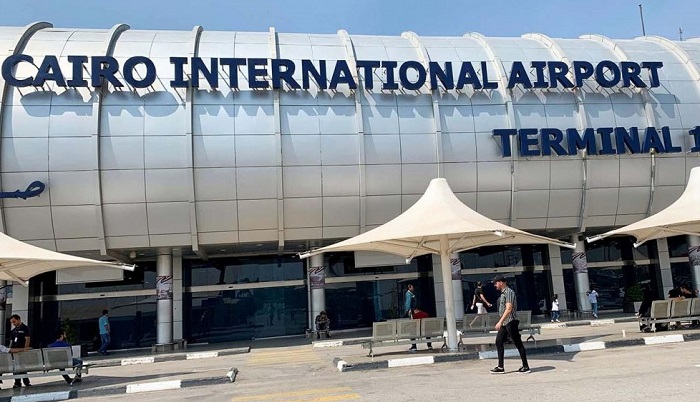
A Gazan at the Egyptian airport
I called my parents once I arrived, and they booked me a flight for 7:00 a.m. I couldn't sleep and kept wandering around the airport.
At 5:45 a.m., I headed to the flight check-in location and stood in the queue waiting for my turn. My Palestinian passport meant I had to then stand in another queue, where they inspected my papers and questioned me about my travel plans. They interrogated me until 6:45 a.m., when I had to get to the plane.
I felt angry and humiliated. I’m a proud Palestinian and will stand up for my rights no matter what. It’s hard when you feel that your dignity isn’t valued and that you’ll have to get things the hard way because of where you are from!
But it stopped mattering when I was between the clouds. I watched the sunrise from above, and after a long time, I smiled from the heart. It’s every Gazan dream to see what’s beyond these borders.

